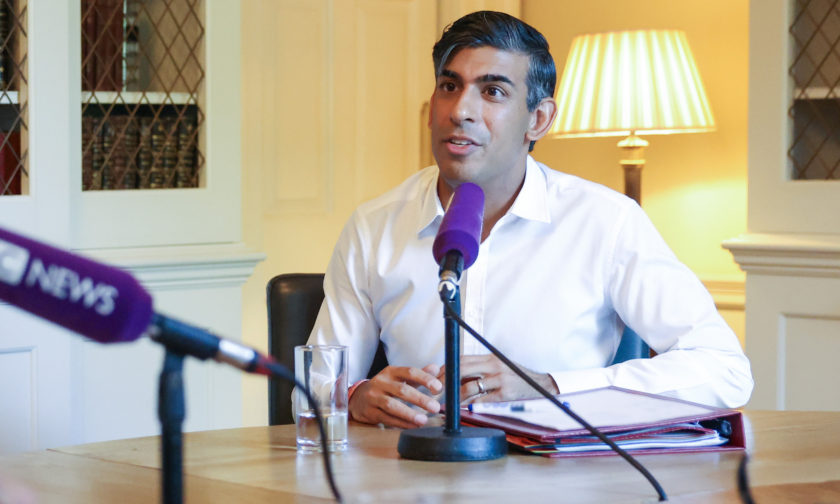Rishi Sunak could be about to ban 20mph speed restrictions on main roads in England

UK Prime Minister Rishi Sunak is poised to set out a “plan for motorists” that will limit the number of 20mph speed restrictions and favour drivers over bus passengers, in England.
A package of measures is expected to be announced at the Conservative conference on Monday, in an effort to win car drivers’ votes, The Guardian reports.
Mr Sunak’s “Plan for Motorists” is anticipated to include restrictions on English councils’ ability to impose 20mph speed limits on main roads and limit the hours that car traffic is banned from bus lanes.
The proposed measures might also curtail local authorities’ capacity to impose fines for traffic violations caught by automatic number plate recognition cameras.
Speaking to ITV Wales during a round of media interviews on Tursday, Mr Sunak criticised Wales’ new 20mph policy introduced on September 17.
He emphasised that imposing a blanket 20 mph speed limit is not right as it doesn’t reflect people’s priorities and needs for day-to-day journeys.
Mr Sunak said: “I think imposing a blanket 20 mile-an-hour speed limit on areas is absolutely not right. It doesn’t reflect people’s priorities.”
“People are dependent on their cars for their day-to-day journeys and these kind of blanket bans aren’t the right proportionate approach.”
“But also it comes on top of this other policy not to build any new roads as well.” “You take these things together, it seems like an attack on motorists and that’s rightly received the opposition that it deserves.”
An online petition calling for the removal of the “disastrous” 20mph law in Wales has garnered nearly 450,000 signatures, a record for the Welsh Parliament.
In a conversation with ITV’s Adrian Masters, Mr Sunak said: “You’ve seen the opposition from people in Wales to this policy.”
“Look, it’s not alone – a Labour mayor in London imposing the ULEZ charge, £12.50 on ordinary families when they’re just trying to get their kids to school, take them to football practice, go weekly shopping or, you know, get to work.”
“Those aren’t the right values of the British people who do rely on their cars to get around and we should be supportive of them.”
Speaking to Deeside.com in the Summer, Mr Sunak said: “I think a blanket reduction to 20 miles an hour doesn’t make sense.”
“It will just add cost and complexity, it will cause people to make that adjustment and just get in the way of their ordinary lives.”
He said the speed limit reduction “in a blanket fashion like that is not appropriate.”
While all the noise has been about the 20mph introduction in Wales, many local authorities in England are introducing countywide 20mph speed limits.
During a meeting this week, Flintshire Council Leader, Cllr Ian Roberts defended the Welsh Government’s controversial 20mph policy, stating it was part of the Welsh Labour manifesto before the last Senedd election.
Cllr Roberts narrated his experience of encountering 20mph speed limits while over on the Wirral, he said he drove there with his wife trying to escape the 20mph limit in Wales.
He warned the council, “If you’re hoping to get away from 20 miles an hour by going over to the Wirral, avoid it, because you’re not going to escape it, it’s there!”
On reports the Prime Minister will unveil new policies aimed at drivers next week, RAC head of policy Simon Williams said:
“While we support the use of 20mph limits being used where they are needed most, such as outside schools, on residential streets and in urban areas where there are lots of pedestrians, implementing them in widespread fashion may unnecessarily lengthen journey times by slowing down traffic, and possibly even increase congestion.”
“We need councils to strike the right balance between making our roads safer and ensuring the smooth flow of traffic, in all its forms. We need to see the detail of the PM’s plan to see whether what’s proposed will really help with that.”
“We badly need to create an integrated transport network that works for everyone, including motorists.”
“Bus lanes are key to that as they help to ensure services run on time in rush-hour when traffic is high, but outside of that can sometimes make traffic worse by limiting the amount of available road space which is something we can well do without.”
“It’s important to realise that eight in 10 drivers tell us they would struggle to get by without access to a car.”
Spotted something? Got a story? Email: [email protected]
Latest News
